
New Biblical Perspective, Part 2
Shawn’s teaching emphasizes Christian love, salvation through Christ, and contextual biblical interpretation. He links Revelation’s locusts to Roman invasions, not future prophecy, and encourages personal spiritual engagement.

The Absolute and Only True Liberty
True freedom is found in Christ’s teachings, not secular pursuits. Divine guidance offers liberation beyond worldly limits, growing through faith and Agape Love.
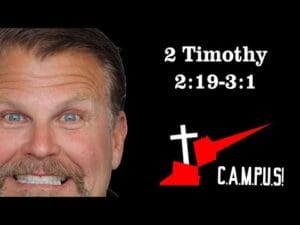
2 Timothy 2:19 – 3:1 Bible Teaching
Paul’s letter to Timothy stresses the church’s foundation on apostles, prophets, and Christ, urging righteousness, testing teachings, and embodying peace, gentleness, and patience.
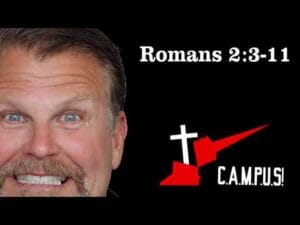
Romans 2:3-11 Bible Teaching
Shawn emphasizes God’s impartial judgment, highlighting hypocrisy in condemning others, and stresses that God’s goodness leads to repentance. True faith is shown by good deeds.

Body Image
Social media amplifies body image issues, pressuring conformity to unrealistic standards. Embrace individuality, faith, and self-worth beyond appearance, fostering true connections.

New Bible Perspective, Part 1
Jesus’ presence in Matthew 18:20 supports structured church discipline. Shawn critiques literal New Testament application today, urging personal faith over institutional rules.

I Got the Power
Shawn McCraney critiques Mormonism’s “us vs. them” mindset, urging humility and reliance on God’s grace over self-empowerment, contrasting with Christian humility.
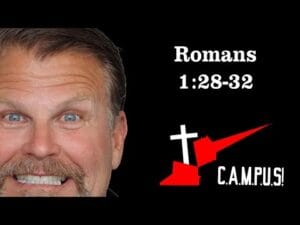
Romans 1:28-32 Bible Teaching
Shawn clarifies Romans 1:27 addresses consensual adult male homosexuality, not pedophilia, emphasizing humility, gratitude, and God’s grace over judgment and sin.

2 Timothy 2:6-18 Bible Teaching
Paul: Prioritizes operational expenses for ministry sustainability. Shawn: Focuses on meeting ministers’ needs first, enduring suffering, and avoiding false doctrines.

Being a Mormon vs. Being an Atheist
Shawn’s teaching compares Mormonism and atheism, emphasizes openness to diverse beliefs, explores election skepticism, and envisions a future led by youth and truth.

Demo-Crazy
Shawn McCraney critiques democracy in church governance, likening it to totalitarianism, and advocates for educated leadership, using Socratic philosophy and Christian Anarchism.
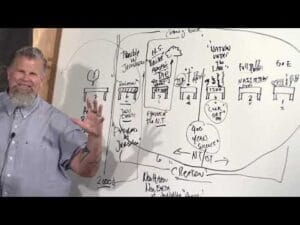
Seven Table Scenes
Shawn’s teaching uses table-setting metaphors to illustrate God’s reconciliation through Jesus, covering biblical events from Eden to Revelation, emphasizing spiritual transformation and direct connection with God.

2 Timothy 1:1 – 2:5 Bible Teaching
Paul’s letter to Timothy stresses apostolic authority, faith, spiritual gifts, resilience, and leadership. Encourages strength, love, and purity, likening faith to a soldier’s duty.

Romans 1:21-27 Bible Teaching
Paul and Shawn discuss humanity’s spiritual decline due to idolatry, emphasizing the rejection of God for creation, leading to moral decay. Idolatry is prioritizing anything over God.

The American Christ?
Faith in Christ varies culturally; Shawn critiques Mormonism, promotes free thinking, open dialogue, and challenges Calvinism’s determinism, emphasizing freedom in faith.

Totalitarian Church
Shawn McCraney warns against political entanglement for Christians, likening it to religious totalitarianism, advocating for personal freedom, individuality, and open dialogue.

King of Pain
Shawn McCraney teaches that pain is constant in life, marked by guilt from sin or alienation in faith, but spiritual growth lessens sin’s grip, with God’s constant support.
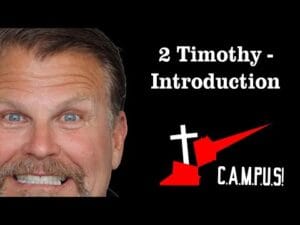
2 Timothy Introduction Bible Teaching
Paul’s second letter to Timothy, written from Roman imprisonment, highlights his unwavering faith amid political and religious challenges, his transformation, and his legacy of perseverance.
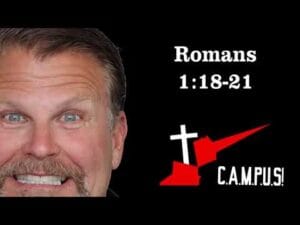
Romans 1:18-21 Bible Teaching
Paul’s teaching in Romans 1:18-32 shows a world without the Gospel falls into sin, facing God’s wrath. Shawn emphasizes reading Scripture fully, understanding God’s wrath as a response to sin, not revenge, and highlights free will and grace over law.

After the Vote
Shawn’s teaching highlights the tension between faith and politics, urging Christians to balance civic duties with spiritual priorities, prioritize Christ’s teachings, and encourage independent thinking.